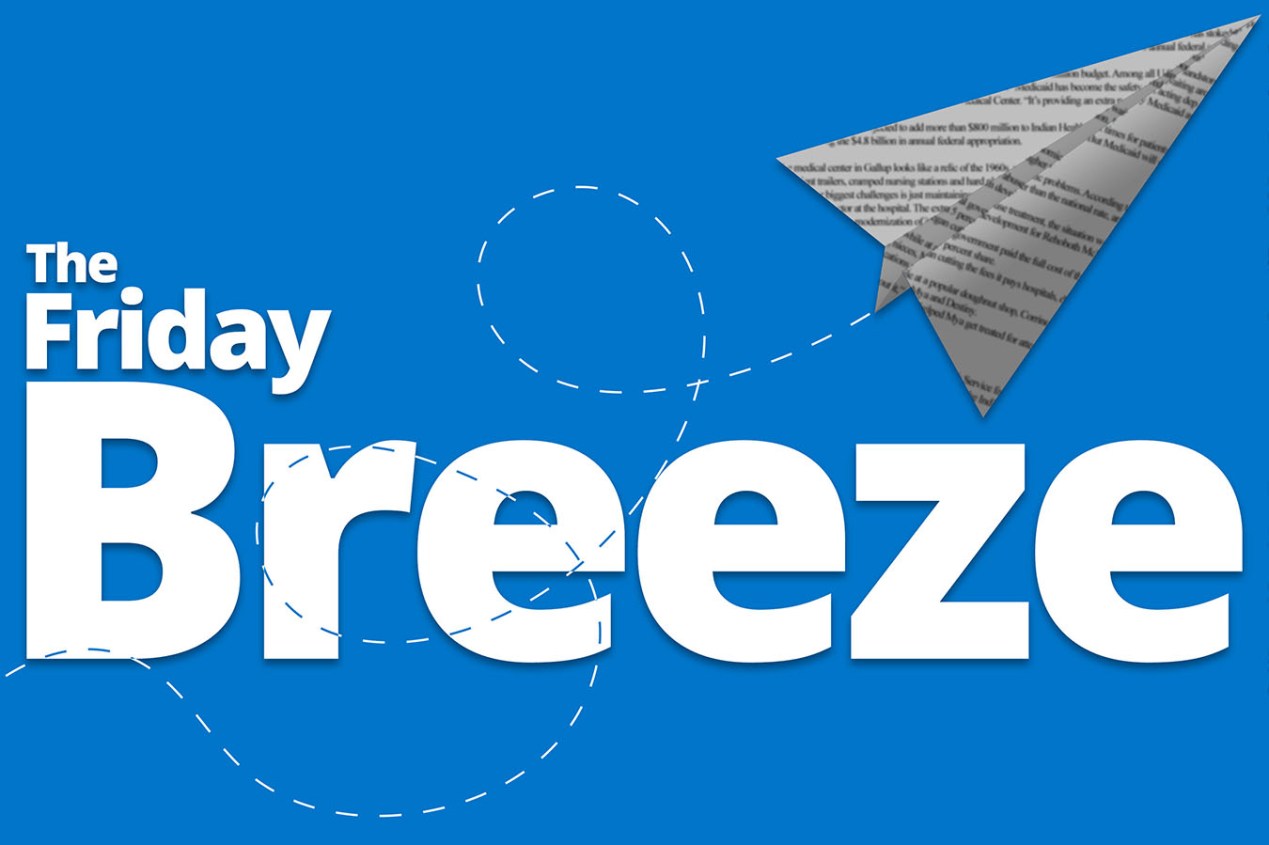If you’ve been glued to your preferred weather service (as I have) over the past few days watching Hurricane Florence lumber toward the East Coast, you may have missed that it was a fairly huge news week for health. So, let’s get right to it!
President Donald Trump shocked and angered both allies and critics with accusations that the latest death toll from Hurricane Maria was inflated by the Democrats to make him look bad.
Bloomberg: Trump Defies Science With Rejection of Puerto Rico Death Toll
4 Takeaways On Puerto Rico’s Death Toll, In The Wake Of Trump’s Tweet Storm
For the first time since 2010, the decline in the uninsured rate stalled. Some blame the Trump administration’s whacks at the health law, but others say it’s just the marketplace leveling off.
The Washington Post: For First Time Since 2010, America’s Progress on Health Insurance Stalls
The fact that Sen. Joe Manchin (D-W.Va.) is using health care while campaigning in a deep-red state that loves Trump shows just how far politics has evolved on the issue. (Even though he’s certainly not mentioning “Obamacare” by name.)
The New York Times: Manchin Counts on Health Care to Stave Off Republican Tide in West Virginia
But a look at tweets on the topic shows it doesn’t matter to Russian trolls which way that popularity pendulum swings — they recognize the health law as a plank sure to sow discord and pit sides against each other.
The Wall Street Journal: Nearly 600 Russia-Linked Accounts Tweeted About the Health Law
Baltimore health commissioner Dr. Leana Wen, an emergency room physician with a reputation for fiercely taking on the Trump administration, has been tapped as Planned Parenthood’s next president. Wen brings firsthand experience with the organization as a child of a low-income family.
The New York Times: Planned Parenthood Names Leana Wen, a Doctor, Its New President
More than 4,300 beneficiaries in Arkansas were kicked off the state’s Medicaid rolls after failing to report their required work hours. Republican Gov. Asa Hutchinson focused on the 1,000 or so residents who have found employment under the new regulations, but critics were quick to point to the number as confirmation of their worst fears that the new fervor for work requirements will lead to a lot of Americans losing insurance.
The Associated Press: Arkansas Drops 4,300 From Medicaid Plan Over New Work Rules
A letter alleging a sexual misconduct incident in Supreme Court nominee Brett Kavanaugh’s past, which Sen. Dianne Feinstein (D-Calif.) has turned over to the FBI, is adding fuel to an already fiery battle on the Hill.
Meanwhile, accusations of bribery are coming out of Maine, where advocates have guaranteed $1 million in fundraising pledges to Republican Sen. Susan Collins’ 2020 opponent if she votes to confirm Kavanaugh.
The Associated Press: $1 Million Pledged Against Collins If She Backs Kavanaugh
A pharma exec’s defense that raising drug prices 400 percent was a “moral requirement” raised more than a few eyebrows. It was a bold claim in an era where most companies are trying to at least appear concerned about the topic.
Financial Times: Pharma Chief Defends 400% Drug Price Rise As a ‘Moral Requirement’
Want to know how those pharmacy benefit managers (yup, the ones now getting lots of fingers pointed at them for the high cost of drugs) can pocket almost $200 for a bottle of pills that’s valued at $6? Check out Bloomberg’s explainer.
In the interest of making this “breezy,” here are some other big news stories from the week: Apple kills two birds with one stone with its new watch: convincing people they need to buy a low-selling product and edging into the health care industry; the number of immigrant teens being held by the government has ballooned; and lawmakers may perform what might be called, in this partisan landscape, a miracle and actually fund the government on time. (See, I was not exaggerating about the amount of news this week!)
Stat: The New Apple Watch, With FDA’s Blessing, Comes With an EKG App
The New York Times: Detention of Migrant Children Has Skyrocketed to Highest Levels Ever
Stat: Trump Wants Drug Prices in TV Ads. The Latest Roadblock? Republicans
Politico: Congress Dares Trump To Shut Down The Government In New Spending Deal
In a story that you can’t make up: A member of the family that owns Purdue Pharma (the maker of OxyContin and subject of more than 1,000 lawsuits regarding its role in the opioid epidemic) has been awarded a patent for a treatment for opioid use disorder.
Stat: Richard Sackler, Member of Clan Behind OxyContin, Has Patent for Opioid Treatment
If all of that wasn’t enough for you, here are a few must-read miscellaneous stories from the week: Nearly two decades after Kendra Webdale was pushed to her death in the subway, the law named in her honor designed to shore up mental health systems is acting more like a band-aid than a cure; advocates are shifting gears on gun safety by going after bullets, which are largely unregulated; recent transparency controversies have some asking: Why do medical journals still take authors at their word?; and a look at the people behind suicide hotlines.
The New York Times: A Horrific Crime on the Subway Led to Kendra’s Law. Years Later, Has It Helped?
The New York Times: California Tries New Tack on Gun Violence: Ammunition Control
Stat: Why Do Medical Journals Keep Taking Authors at Their Word?
CNN: When Someone Is Thinking of Suicide, These Are the People Who Talk Them Out of It
If you had a gloomy 2017, at least take heart in the fact that it wasn’t just you.
Please have a safe weekend if you’re in Florence’s path!
